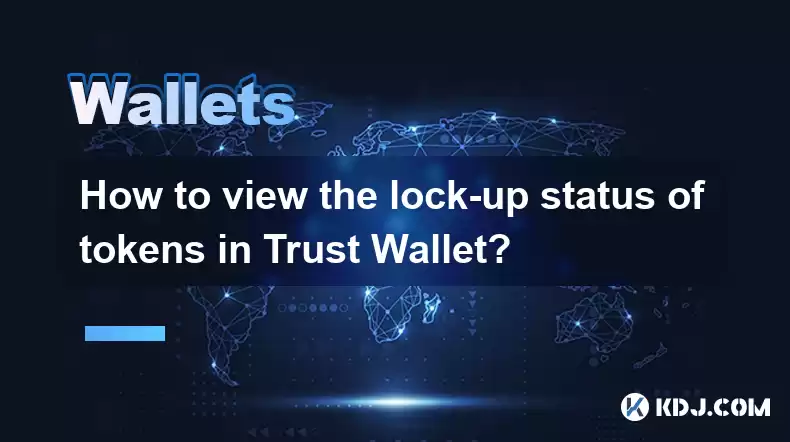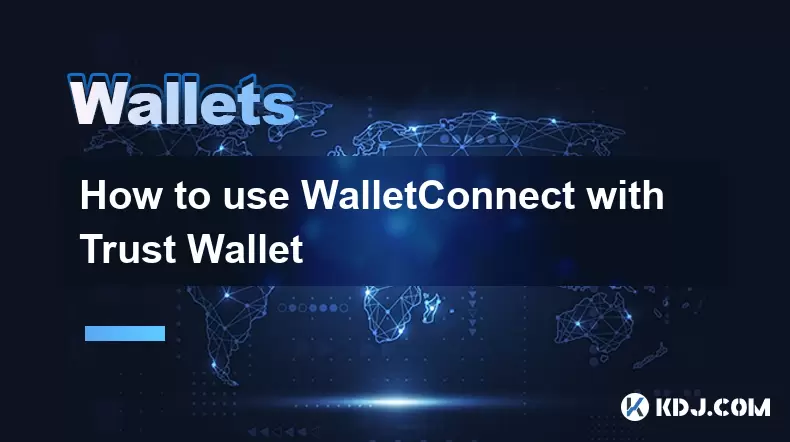-
 Bitcoin
Bitcoin $120100
0.91% -
 Ethereum
Ethereum $4597
8.09% -
 XRP
XRP $3.292
4.12% -
 Tether USDt
Tether USDt $0.9999
-0.01% -
 BNB
BNB $837.7
3.84% -
 Solana
Solana $190.8
8.16% -
 USDC
USDC $0.9998
-0.01% -
 Dogecoin
Dogecoin $0.2365
4.04% -
 TRON
TRON $0.3515
1.90% -
 Cardano
Cardano $0.8502
8.56% -
 Chainlink
Chainlink $23.56
10.38% -
 Hyperliquid
Hyperliquid $44.88
2.69% -
 Stellar
Stellar $0.4538
4.57% -
 Sui
Sui $3.910
5.74% -
 Bitcoin Cash
Bitcoin Cash $624.3
6.95% -
 Hedera
Hedera $0.2626
6.35% -
 Ethena USDe
Ethena USDe $1.001
-0.01% -
 Avalanche
Avalanche $24.81
6.92% -
 Litecoin
Litecoin $129.0
6.38% -
 Toncoin
Toncoin $3.519
3.77% -
 UNUS SED LEO
UNUS SED LEO $9.069
1.07% -
 Shiba Inu
Shiba Inu $0.00001367
4.45% -
 Uniswap
Uniswap $11.55
3.55% -
 Polkadot
Polkadot $4.186
7.13% -
 Ethena
Ethena $0.8169
2.57% -
 Cronos
Cronos $0.1670
0.16% -
 Dai
Dai $0.9999
-0.01% -
 Pepe
Pepe $0.00001223
6.79% -
 Bitget Token
Bitget Token $4.464
1.34% -
 Aave
Aave $317.0
6.94%
How to view the lock-up status of tokens in Trust Wallet?
Token lock-ups in crypto projects prevent early dumping; check lock-up status in Trust Wallet via token metadata, block explorers, project websites, or by contacting the team directly.
Mar 27, 2025 at 07:57 am

Understanding Token Lock-Ups
Many cryptocurrency projects utilize token lock-ups as a mechanism to incentivize long-term investment and prevent early dumping that could negatively impact the token's price. These lock-ups restrict the transferability of tokens for a predetermined period. Understanding your token's lock-up status within Trust Wallet is crucial for managing your assets effectively. Trust Wallet itself doesn't directly manage lock-up contracts; it's merely a display interface. The lock-up information is derived from the specific smart contract governing the token.
Locating Lock-Up Information in Trust Wallet
Unfortunately, there isn't a single, universal method to view lock-up status within Trust Wallet. The process depends entirely on how the specific token's lock-up mechanism is implemented. Some projects integrate lock-up information directly into their token's metadata, while others require external tools or websites. This lack of standardization is a common challenge in the crypto space.
Method 1: Checking Token Metadata
- Open your Trust Wallet and navigate to your token holdings.
- Select the token you suspect might be locked.
- Look for details within the token's information page. Some projects display lock-up information, such as the vesting schedule or unlock date, directly within this section. This information is usually provided by the token issuer and incorporated into the token's metadata. This is the most straightforward method, but not all projects implement it.
Method 2: Using a Block Explorer
- If the token's metadata doesn't provide lock-up details, you'll need to use a block explorer like Etherscan (for Ethereum-based tokens), BscScan (for Binance Smart Chain tokens), or others specific to the relevant blockchain.
- Find your token's contract address (usually available on the token's website or within Trust Wallet's token details).
- Paste the address into the block explorer.
- Explore the contract's code or transaction history. You might find information about vesting schedules or locked tokens. This method requires technical understanding and is not user-friendly for everyone.
Method 3: Checking the Project's Website
- Many projects provide detailed information about their tokenomics, including lock-up schedules and vesting periods, on their official website. This is often presented in a whitepaper, tokenomics document, or a dedicated FAQ section.
- Refer to the project's documentation to find information on how to check the lock-up status of your tokens. This is a reliable source of information, provided the project is transparent and keeps its documentation updated.
Method 4: Contacting the Project Team
- If you're still unable to determine your token's lock-up status using the previous methods, consider contacting the project's support team directly. They should be able to provide you with the necessary information or guide you through the process. This is the most reliable method, but it can be time-consuming.
Understanding Vesting Schedules
A vesting schedule is a common feature of token lock-ups. It defines how and when locked tokens are released over time. Understanding the vesting schedule is crucial for knowing when you'll have full access to your tokens. These schedules are usually detailed in the project's documentation or smart contract. Failure to understand the vesting schedule could lead to unexpected delays in accessing your funds.
Risks Associated with Locked Tokens
Remember that locked tokens are inaccessible until the lock-up period expires. You won't be able to trade, transfer, or use them during this time. Before investing in tokens with lock-ups, ensure you understand the terms and conditions, including the lock-up duration and any penalties for early withdrawal. Always conduct thorough due diligence before investing in any cryptocurrency project.
Different Types of Lock-Ups
Lock-up mechanisms vary significantly. Some projects use simple time-based lock-ups, while others employ more complex vesting schedules with cliff periods (initial period where no tokens are released) and linear or accelerated releases. Understanding the specific type of lock-up is essential for accurate status verification.
The Role of Smart Contracts
The lock-up mechanism is usually implemented through a smart contract on the blockchain. This contract governs the rules and conditions of the lock-up, ensuring transparency and immutability. Analyzing the smart contract code can provide detailed insights into the lock-up mechanism, but requires technical expertise.
Frequently Asked Questions
Q: My tokens are showing a zero balance in Trust Wallet, but I know I have them locked. What's happening?
A: Trust Wallet only displays the balance of immediately transferable tokens. If your tokens are locked, they won't be reflected in your available balance. You need to use the methods described above to check the lock-up status.
Q: The project website doesn't provide clear information about the lock-up. What should I do?
A: Contact the project's support team directly. Lack of transparency regarding lock-ups is a red flag, so proceed with caution.
Q: Can I unlock my tokens before the scheduled date?
A: Generally, no. Attempting to do so may result in penalties or loss of tokens, depending on the specific terms of the lock-up agreement.
Q: What if the project disappears or the contract is compromised?
A: This is a risk inherent in cryptocurrency investments. Thorough due diligence and diversification can help mitigate this risk. Locked tokens are subject to the same risks as unlocked tokens in such scenarios.
Q: Where can I find the contract address for my locked tokens?
A: The contract address is usually found on the token's website, within Trust Wallet's token details, or on the relevant blockchain explorer.
Disclaimer:info@kdj.com
The information provided is not trading advice. kdj.com does not assume any responsibility for any investments made based on the information provided in this article. Cryptocurrencies are highly volatile and it is highly recommended that you invest with caution after thorough research!
If you believe that the content used on this website infringes your copyright, please contact us immediately (info@kdj.com) and we will delete it promptly.
- Unich's OTC Exchange: Surging with $1.2B Volume – What's the Hype?
- 2025-08-13 02:50:11
- MoonBull's Explosive Moves: Your Crypto Whitelist Ticket to Ride!
- 2025-08-13 02:30:11
- MAGACOIN Finance: Don't Miss the Presale Bonus!
- 2025-08-13 02:30:11
- Trump's Crypto Kingdom: $2.4 Billion and Counting
- 2025-08-13 02:50:11
- Solana, LSTs, and SEC Approval: A New Dawn for Crypto?
- 2025-08-13 02:55:12
- Bitcoin's Profit Surge: Unpacking the BTC Value Boom
- 2025-08-13 02:55:12
Related knowledge

How to manage your portfolio in Exodus wallet
Aug 08,2025 at 10:07pm
Understanding the Exodus Wallet InterfaceThe Exodus wallet is a non-custodial cryptocurrency wallet that supports a wide range of digital assets. When...

How to reset your MetaMask password
Aug 08,2025 at 01:28pm
Understanding the MetaMask Password Reset ProcessMany users confuse the MetaMask password with the seed phrase or private key, but they serve differen...

How to use WalletConnect with Trust Wallet
Aug 13,2025 at 01:07am
What Is WalletConnect and Why It Matters for Trust Wallet UsersWalletConnect is an open-source protocol that enables secure communication between dece...

How to buy Dogecoin on MetaMask
Aug 08,2025 at 03:42am
Understanding Dogecoin and MetaMask CompatibilityDogecoin (DOGE) is a popular meme-based cryptocurrency that operates on its own blockchain, originall...

How to switch between networks in Trust Wallet
Aug 09,2025 at 11:07am
Understanding Network Switching in Trust WalletSwitching between networks in Trust Wallet allows users to manage assets across different blockchains, ...

How to set up Face ID for MetaMask
Aug 12,2025 at 02:42am
Understanding Face ID and Its Role in MetaMask SecurityMetaMask is a widely used cryptocurrency wallet that allows users to interact with the Ethereum...

How to manage your portfolio in Exodus wallet
Aug 08,2025 at 10:07pm
Understanding the Exodus Wallet InterfaceThe Exodus wallet is a non-custodial cryptocurrency wallet that supports a wide range of digital assets. When...

How to reset your MetaMask password
Aug 08,2025 at 01:28pm
Understanding the MetaMask Password Reset ProcessMany users confuse the MetaMask password with the seed phrase or private key, but they serve differen...

How to use WalletConnect with Trust Wallet
Aug 13,2025 at 01:07am
What Is WalletConnect and Why It Matters for Trust Wallet UsersWalletConnect is an open-source protocol that enables secure communication between dece...

How to buy Dogecoin on MetaMask
Aug 08,2025 at 03:42am
Understanding Dogecoin and MetaMask CompatibilityDogecoin (DOGE) is a popular meme-based cryptocurrency that operates on its own blockchain, originall...

How to switch between networks in Trust Wallet
Aug 09,2025 at 11:07am
Understanding Network Switching in Trust WalletSwitching between networks in Trust Wallet allows users to manage assets across different blockchains, ...

How to set up Face ID for MetaMask
Aug 12,2025 at 02:42am
Understanding Face ID and Its Role in MetaMask SecurityMetaMask is a widely used cryptocurrency wallet that allows users to interact with the Ethereum...
See all articles

























































































